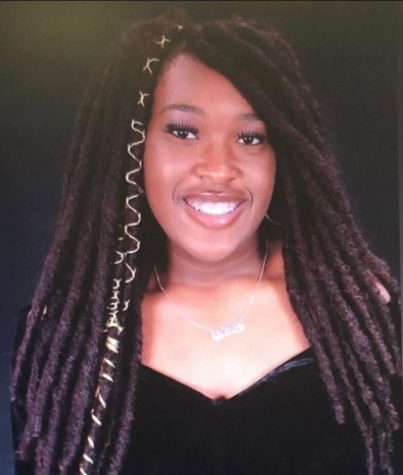Opinion: Being a black female in sports journalism is hard…especially at a PWI
February 20, 2020
Being a black woman in the workplace means constantly having to prove yourself. It means that when you apply for a job, checking the box indicating your skin color could be the reason that you don’t get the job. It means that your voice is often not heard when you advocate for change, and when you do speak your mind, you’re forever labeled as an angry black woman.
This black history month, I want to shine a light on the issues that I face as a black woman learning the ropes in the adult world at a PWI.
Ever since I was a little girl, my mom told me that I would have to work twice as hard as others to get to where I want to be. I didn’t believe her. I thought that times would get better and that this would not be something that I would have to deal with. Well, as always, mom was right.
Being a black woman in the workplace means that you are not considered for higher positions. Black women have to deal with two negatives. A woman is already considered inferior to men, but being black on top of it is a double whammy. People look past me for accomplishments that I deserve. Others will recognize my talent, but they put it in the shadows of someone obviously less qualified or capable just because.
I am one of the first female black sports editors of this newspaper. The last person of the demographic held the position in 2011. That was nine years ago, which is far too long. This could be because someone of my demographic has not applied for this position, but it also could be because the world of sports is occupied by older white men…yet the majority of athletes are black. It is not a very inviting environment for people like me. Everytime I go to cover a game, I am repeatedly asked to show my press pass.
Why is this? Because I don’t look like I belong? I was told at Paulson Stadium that I could not bring in my media supplies because I could not prove I was a part of the media, even though I had on a press pass. I had to physically google my name to show that I am a student journalist for the school to be granted entry.
I get looked at on the sidelines of games, and at press conferences I am the only woman of color, and oftentimes, not even acknowledged .
Being a black woman working for a student newspaper at this PWI means that when I speak about something, it falls on deaf ears and ideas are often overlooked. It means that the sports section of the paper is often an afterthought, and it means that nobody cares how I devote my entire life to Georgia Southern athletics.
The only time I’m listened to is when someone else needs something. The amount of pressure applied to a black woman is not equal to others. We are subject to more scrutiny and held on a tighter leash.
Many people of color are not acknowledged for their accomplishments, and peers are often high fived for doing a fraction of what they’re doing, and that is only due to the color of our skin.
Many people do not realize how they contribute to this issue. The biggest problem comes with microaggressions. Comments like “let’s not bring race into this” or “you know a lot about sports for a woman” is a slap in the face disguised by a cheap compliment.
If men who have never played a sport in their life can learn about a sport and become a great journalist, then so can I. I come from an athletic family and was a competitive dancer who made multiple appearances at the World Dance Championships throughout my life. I am more than qualified.
We are at a PWI, and I understand that. But, we must address that there are definitely racial divisions that not all people may be able to see. Throwing the word “diversity” into a mission statement and various job descriptions does not mean that the school is making conscious efforts to actually create opportunities for people of color.
Though I don’t believe that this issue will never be resolved, there are simple steps that you could take to combat it in a workplace environment.
-
Addressing your privilege and listening to concerns about equality when a conversation about it arises
-
Allowing black women to have a voice in important decision making processes
-
Make decisions based on qualifications regardless of gender or race
The topic of addressing race and white privilege can be sticky for some. Well, I don’t care. Not addressing the discrepancies enables more toxic behavior.


















